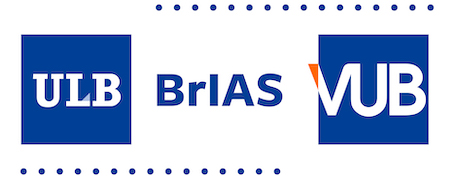1. Prof. Yael Edan, Professor, ABC Robotics initiative (BrIAS Senior Fellow)
Title: "Social Assistive Robots for Elder Care: R&D Findings"
The world's population is aging rapidly, and the number of older adults is projected to increase dramatically in the years to come along. However, the population of caregivers does not increase at a similar rate, leading to an increased need in developing solutions that will assist the older adults. A possible solution to bridge this eldercare gap is the use of social assistive robots (SARs). However, introducing SARs to support older adults comes with inherent interaction challenges: older adults perceptual challenges and their particular needs and expectations, transparency in interaction, function allocation in human–robot tasks, autonomy balance between the older adults and the SAR to ensure engagement of the older adult while interacting with the robot, and integrating social aspects in the interaction to ensure robot acceptance by the older adult. I will present a series of human-centric studies in which we took a holistic approach taking into account the robot, the task and the environment and guidelines for improved interaction in design of SARs for older adults. Specifically, we developed and evaluated: 1) user-centered feedback considering feedback content, modalities, and timing options 2) levels of automation/autonomy using a function allocation model 3) a framework that linked levels of transparency with levels of autonomy 4) a transparency based action model and 5) polite and understanding robots. An overview of this research conducted to enhance interaction in different robotic platforms, tasks, and scenarios for the support of older adults will be presented. Additional work using a mixed methods approach has been directed to understand the factors affecting older adults’ quality evaluation of SARS for successful acceptance and assimilation.
2. Prof. Barry Lennox, Professor, University of Manchester, Department of Electrical and Electronic Engineering, UK (BrIAS Senior Fellow).
Title: "Use of Robots to Support Sustainable Nuclear Energy"
There is a growing demand from industry for robotic systems that can be deployed into extreme environments for very long periods of time, with little or no maintenance. Such robots have the potential to deliver considerable benefits across multiple sectors, including space, nuclear and infrastructure. The focus of this presentation will be on some of the robotic challenges that are faced in the nuclear sector, where robots are essential if nuclear power (fission and fusion) is to be harnessed in the future. Details will be provided of some of the robots that have been developed at the University of Manchester, and deployed into radioactive environments.
3. Dr. Michel Joop van der Schoor, Post-Doc, Brubotics/Fari, VUB (BrIAS Junior Fellow)
Title: "Sustainability in the design of urban service robots"
The concept of sustainability and sustainable development has been well discussed and was subject to many conferences of the EU and UN resulting in agendas, goals, and resolutions. Yet, literature shows that the three dimensions of sustainability (ecological, social, and economic) are unevenly accounted for in the design of mechatronic products. The stated reasons range from a lack or inapplicability of tools for integration into the design process, models for simulation, and impact analyses to necessary changes in policy and social behavior. The influence designers have on the sustainability of a product lies mostly in the early design phases of the development process, such as requirements engineering and concept evaluation. Currently, these concepts emerge mostly from performance-based requirements rather than sustainability impact-based requirements, which are also true for service robots in urban environments. So far, the main focus of research in this innovative and growing product branch lies in performance in perception, navigation, and interaction. In my PhD I focused on the integration of all three dimensions of sustainability into the design process. Therefore, I describe the development of an urban service robot supporting municipal waste management in the city of Berlin. It is the set goal for the robot to increase the service and support the employees while reducing emissions. For that, I make use of a product development process (PDP) and its adaptable nature to build a specific development process suited to include the three dimensions of sustainability during the requirements engineering and evaluation activities. Herein, I show which aspects are underrepresented. Especially, the social dimension required me to look beyond standardized methods in the field of mechanical engineering. Based on my findings, I introduce a new activity to the development process that I call preliminary social assessment in order to incorporate social aspects in the early design phase.
For the teams link, or in-person participation, registration is required. Coffee and tea will be served.
This Seminar will also be livestreamed on our Youtube channel @BrIAStalks
Location:
VUB Campus Etterbeek
AI Experience Centre (AIXC)
Pleinlaan 9,
